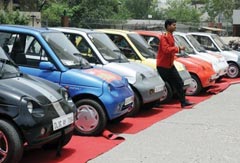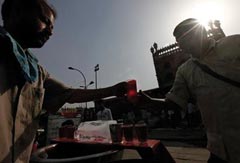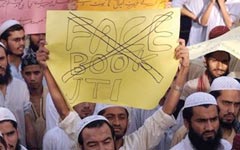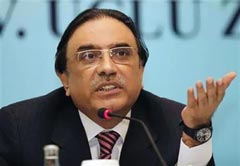|
|
|
ADVERTISEMENTS
|
|
PREMIUM
- HAPPY HOLIDAYS!
- Siliconeer Mobile App - Download Now
- Siliconeer - Multimedia Magazine - email-Subscription
- Avex Funding: Home Loans
- Comcast Xfinity Triple Play Voice - Internet - TV
- AKSHAY PATRA - Bay Area Event - Sat. Dec 6
- Calcoast Mortgage - Home Loans
- New Homes in Silicon Valley: City Ventures - Loden Place - Morgan Hill
- Bombay to Goa Restaurant, Sunnyvale
- Buying, Sellling Real Estate in Fremont, SF Bay Area, CA - Happy Living 4U - Realtor Ashok K. Gupta & Vijay Shah
- Sunnyvale Hindu Temple: December Events
- ARYA Global Cuisine, Cupertino - New Year's Eve Party - Belly Dancing and more
- Bhindi Jewellers - ROLEX
- Dadi Pariwar USA Foundation - Chappan Bhog - Sunnyvale Temple - Nov 16, 2014 - 1 PM
- India Chaat Cuisine, Sunnyvale
- Matrix Insurance Agency: Obamacare - New Healthcare Insurance Policies, Visitors Insurance and more
- New India Bazar: Groceries: Special Sale
- The Chugh Firm - Attorneys and CPAs
- California Temple Schedules
- Christ Church of India - Mela - Bharath to the Bay
- Taste of India - Fremont
- MILAN Indian Cuisine & Milan Sweet Center, Milpitas
- Shiva's Restaurant, Mountain View
- Indian Holiday Options: Vacation in India
- Sakoon Restaurant, Mountain View
- Bombay Garden Restaurants, SF Bay Area
- Law Offices of Mahesh Bajoria - Labor Law
- Sri Venkatesh Bhavan - Pleasanton - South Indian Food
- Alam Accountancy Corporation - Business & Tax Services
- Chaat Paradise, Mountain View & Fremont
- Chaat House, Fremont & Sunnyvale
- Balaji Temple - December Events
- God's Love
- Kids Castle, Newark Fremont: NEW COUPONS
- Pani Puri Company, Santa Clara
- Pandit Parashar (Astrologer)
- Acharya Krishna Kumar Pandey
- Astrologer Mahendra Swamy
- Raj Palace, San Jose: Six Dollars - 10 Samosas
CLASSIFIEDS
MULTIMEDIA VIDEO
|
|
|
|
|
NEWS DIARY
Muslim Rocker on Jihad against Extremists | Mahindra Buys Majority Stake in Reva | Heat Wave Grips India, Toll Rises above 100 | Flights Resume | Islamists Held | YouTube Ban Lifted | President's Plea | No Evidence | Lanka to US: Change Focus | Jail Term Increased | Lanka Pressure
Muslim Rocker on 'Jihad' against Extremists
 Salman Ahmad Salman Ahmad
Pakistani-born rock star Salman Ahmad says he is using music to fight the cultural battle against Muslim extremism, reports BBC Online. Currently in the U.K., he has been speaking to the BBC's Caroline Hawley about his own personal "jihad."
Ahmad has a huge following among Pakistan's youth.
His rock band Junoon has been described as South Asia's U2. They have sold about 30 million albums around the world.
Now the pony-tailed, Pakistani-born Muslim rocker is in the U.K. to sell his message of tolerance and non-violence to Muslim groups, and promote his autobiography, “Rock & Roll Jihad.”
Ahmad is fighting a cultural battle against those he calls "murderous thugs masquerading as holy men.”
Extremists are reaching out to the same youth market that he is, he says. But Salman Ahmad believes that arts and culture can play an important role in combating extremism.
"Music has the power to bring people together," he insists. "And that's what the extremists don't want."
Ahmad, who trained as a doctor, formed his band, Junoon, in 1990 after giving up medicine for music — a passion since childhood.
At the age of 18, in President Zia ul-Haq's Pakistan, Salman Ahmad suffered the loss of his precious first guitar which was smashed by extremist students who had stormed into a secret talent show in which he was participating.
"After they'd broken my guitar, they threatened to shoot me if I ever played it again," he says. "I saw radicalization first hand."
Salman Ahmad - a Beatles fan inspired by Led Zeppelin - refused to be silenced.
He now lives in the United States but travels regularly to Pakistan where, he says, today's artists have to perform "like guerrillas."
|TOP|
Mahindra Buys Majority Stake in Reva
 Reva electric vehicles Reva electric vehicles
Indian car maker Mahindra and Mahindra said it had bought a majority stake in Bangalore-based Reva Electric Car to strengthen its position in the low-emission electric auto market.
Mahindra, India's largest sports utility vehicle and tractor maker, bought a 55.2 percent stake in Reva, a global leader in producing low-cost electric cars.
The deal includes buying out equity from the promoters of Reva and providing 450 million rupees (9.5 million dollars) in fresh equity, a statement to the Mumbai stock exchange said.
Reva was formed in 1994 as a joint venture between the family-owned Maini Group and AEV of the United States to manufacture eco-friendly cars.
Reva Electric will be renamed Mahindra Reva Electric Vehicle, and will retain two directors from the Maini group and one from California-based AEV on its board.
Several auto makers like General Motors, Nissan and Toyota are developing environmentally-friendly vehicles.
"Reva will help us expand our green footprint both in India and overseas," Anand Mahindra, vice-chairman of Mahindra and Mahindra, said in a statement.
Pawan Goenka, who will head Mahindra Reva, told reporters in Bangalore that Mahindra would bring to the company its experience of vehicle development and its strong distribution network.
Reva launched its electric cars in Bangalore in 2001 and in London through the G-Wiz brand in 2004. It has about 3,500 electric cars on the road in 24 countries across Europe, Asia and Central and South America.
Goenka said he expected India to produce 80,000 to 100,000 electric vehicles by the year 2020, with global sales projected at 1.5 to two million cars.
|TOP|
Heat Wave Grips India, Toll Rises above 100
 A wayside vendor sells a cool drink in New Delhi. A wayside vendor sells a cool drink in New Delhi.
The killer heat wave in India is taking a toll. About 134 people have died this summer.
This has prompted the Rajasthan government to set up relief camps across the state.
Many parts of north and east India continued to reel under a heat wave with the mercury nearing a scorching 50 degrees Celsius in Jalgaon in Maharashtra and touching 47.9 in Haryana's Hisar, officials said. Many deaths have been reported from various places due to the intense heat.
Hisar in Haryana sizzled at 48 degrees. Five people died in Nagpur where the mercury crossed the 47 degree mark. In Rajasthan, Jaipur boiled at 44 degrees Celsius. Delhi was no better off at 45 degrees. Cities down south aren't being spared either as Hyderabad recorded 40 degrees and Chennai 37 degrees.
"There is a heat wave condition in the country with rising temperatures, including in the national capital. It will take some time for the condition to subside," India Meteorological Department director B.P. Yadav said.
According to the National Oceanic and Atmospheric Administration, the U.S. climate agency that monitors global weather using satellites, the first four months of 2010 have been sizzling hot and north India has not had this high temperature in the last 100 years.
In Maharashtra, the extreme heat has resulted in 61 deaths, officials said. The maximum temperature in the state touched a sweltering 49 degrees Celsius in Jalgaon in north Maharashtra. The weather conditions were similar in many other parts of the state.
"The deficit rainfall in the state, except in the Konkan region, has led to a heavy water crisis in Maharashtra," an official said.
|TOP|
Flights Resume
 An Air India plane in the international airport in Mumbai. An Air India plane in the international airport in Mumbai.
Striking Air India ground crew and engineers have returned to work and flights resumed, the company said, after industrial action led to cancellations just days after a fatal crash.
The two-day stoppage by some 15,000 workers was called off after a court ruling that the strike was illegal and the state carrier sacked or suspended some of those involved.
The stoppage, prompted in part by an alleged gag on staff talking to the media about the Air India Express crash in which 158 people died, forced the cancellation of 76 flights, including 14 on international routes.
Air India spokesman K. Swaminathan told AFP in Mumbai that some flights were delayed or cancelled, without specifying numbers, but added: "We are trying to get back to normalcy."
His colleague in New Delhi, S. Chandra Kumar, added that they were "exploring the possibility" of no longer recognizing the Air Corporation Employees Union and the All India Aircraft Engineers Association.
"You can't be a service industry and not have people perform their functions," he said.
Aviation Minister Praful Patel gave Air India bosses a free hand to break the strike, calling those involved "irresponsible" for walking out so soon after a devastating air crash near Mangalore.
The airline filed for an injunction in the Delhi High Court against the two unions on the grounds that the strike was illegal and unjustified and would cause "enormous damage" to revenues and loss of public reputation.
The court upheld the application and ordered the strike to be called off.
Later, Air India management served notice on 17 employees and suspended a further 15.
Vivek Rao, from the Air Corporation Employees Union, confirmed that the strike was over and that they had "come to an understanding" with Air India, without elaborating.
|TOP|
Islamists Held
Police have arrested four suspected Islamic militants and seized bomb-making materials in a raid in the Bangladeshi capital Dhaka, the national police chief said.
The suspects were arrested from a four-story apartment building in Dhaka's southern Dhania district where they were living as tenants, police chief Noor Mohammad said. A woman believed to be the wife of one of the men also was detained, he said.
Police seized explosives, bomb-making materials and firearms from the men, he said.
Police believe the men are top-ranking leaders of the banned, radical Islamic group Jumatul Mujahideen Bangladesh. Mohammad did not provide further details.
Jumatul Mujahideen Bangladesh seeks to establish Islamic law in Muslim-majority Bangladesh. It was blamed for countrywide bombings that killed at least 26 people and wounded dozens in 2005.
Six high-ranking members of the group, including its leader Shaikh Abdur Rahman and his deputy Siddiqul Islam, were hanged in 2007 for killing two judges in a separate 2005 bomb attack in the southern town of Jhalakathi. During their trial, the defendants said they targeted the courts because they are run by secular laws.
|TOP|
YouTube Ban Lifted
 Pakistanis protest against Facebook in Lahore. Pakistanis protest against Facebook in Lahore.
Pakistan has restored access to YouTube, but several hundred pages on the popular video sharing Web site will remain blocked because of "blasphemous" content, officials said.
"YouTube has been unblocked, but the links to sacrilegious content would remain inaccessible in Pakistan," Khurram Mehran, a spokesman for the Pakistan Telecommunication Authority, told AFP.
A spokesman for Internet Service Providers Association of Pakistan confirmed that the blanket ban had been lifted on YouTube — one of the most popular websites in the country of 170 million.
"They issued the orders last night. Then they issued a list of particular URLs they say should be kept blocked while the whole site needs to remain open," Wahaj us Siraj told AFP.
"There are 200-plus particular links or URLs of YouTube that need to be blocked," he said.
Internet users in Pakistan are now able to access YouTube for the first time since the entire Web site was banned in the wake of public outrage about caricatures of the Prophet Mohammed that first appeared on Facebook.
A private Facebook user organized an "Everyone Draw Mohammed Day" competition to promote "freedom of expression," which sparked a major backlash among Islamic activists in the conservative Muslim country.
Several thousand Pakistanis took to the streets at the behest of religious groups to protest, but demonstrations have been peaceful.
|TOP|
President’s Plea
 Ram Baran Yadav Ram Baran Yadav
Nepal's president urged the leaders of the three main parties to resolve a deadlock that threatens to plunge the troubled nation into political chaos without a functioning government.
Ram Baran Yadav called an emergency meeting after days of talks between the parties failed to make any progress on agreement to extend the term of the current parliament, or Constituent Assembly, which expires soon.
"The president expressed his concerns at the impending turmoil that will hit the nation if the CA tenure is not extended on time," Yadav's spokesman Rajendra Dahal told AFP.
"The president urged all leaders to forge consensus and move ahead to save the country from a political crisis."
Nepal's coalition government has introduced a bill to extend the term of the parliament, which was elected in 2008 with the task of writing a new constitution within two years to pave the way for fresh polls this year.
But the parties failed to agree on the contents of the constitution and now the opposition Maoist party, which holds the highest number of seats, is refusing to vote for the bill unless the prime minister stands down.
The Maoists fought a decade-long civil war against the state before winning 2008 elections, but have been in opposition for the past year.
Maoist leader Pushpa Kamal Dahal, better known as Prachanda, has been locked in talks with the leaders of the ruling Communist Party of Nepal and Nepali Congress to press his demands for a new power-sharing government.
But the other parties are refusing to stand down, resulting in the current deadlock.
|TOP|
'No Evidence'
 Asif Ali Zardari Asif Ali Zardari
Pakistan's law minister has told the Supreme Court there is no evidence to implicate President Asif Ali Zardari in Swiss money-laundering cases.
Babar Awan said there was no proof the president had deposited millions of dollars in Swiss banks he allegedly received as kickbacks for contracts.
The president, who denies the charges, has immunity from prosecution.
But the Supreme Court is eager to re-open outstanding corruption cases after scrapping an amnesty last year.
A panel of five judges questioned the law minister as part of its investigation into the progress of outstanding corruption cases.
In December, the Supreme Court repealed the National Reconciliation Ordinance – a piece of legislation passed by former President Pervez Musharraf, which effectively granted senior politicians and others amnesty from corruption charges.
There are still court cases pending in Pakistan against Zardari who spent years in jail on corruption charges he says were politically motivated.
The court gave the government two weeks to file a report on what steps it has taken to revive all the outstanding cases.
President Asif Ali Zardari and his wife, assassinated former Prime Minister Benazir Bhutto, were accused in 1997 of receiving kickbacks from Swiss firms which were awarded goods inspection contracts during Bhutto's time in power between 1993 and 1996.
This case is one of more than a dozen cases of criminal assault and corruption lodged against President Zardari soon after his wife's government was overthrown in 1996.
The Swiss investigation was recently dropped, reportedly on the request of Pakistan's government.
Swiss prosecutors say they cannot reopen the case because Zardari has legal immunity as a head of state.
|TOP|
Lanka to US: Change Focus
Sri Lanka's new Foreign Minister G.L. Peiris has urged Washington to seize business and other opportunities in post-war Sri Lanka rather than focus only on alleged human rights abuses there.
Visiting Washington after Sri Lankan President Mahinda Rajapakse won a resounding reelection victory in April, Peiris parried criticism from human rights activists and others as he began a week-long visit to push for closer ties.
A year after the end of the civil war, "the circumstances are propitious for a certain strengthening and deepening of the relationship between Sri Lanka and the United States," Sri Lanka's chief diplomat said.
"We are not in any way resentful of the focus on human rights. That is understandable. We are not complaining about it," Peiris told a gathering hosted by the Center for Strategic and International Studies think tank.
"But we are making the point that the relationship should not be one dimensional. There are many other things that Sri Lanka and the United States can do together," he said.
Rajapakse has come under fire at home and abroad for allegedly violating human rights in the final military campaign against Tamil Tiger rebels and has been accused of suppressing dissent since his reelection.
Representatives from the International Crisis Group and Amnesty International aired some of the alleged abuses in a question-and-answer session with Peiris following his speech about post-election and post-war developments.
Business opportunities abound, according to Peiris, who was minister for international trade in the previous government.
|TOP|
Jail Term Increased
A court in India has increased the jail term of a former senior police officer convicted of molesting a 14-year-old girl who later committed suicide.
Dismissing his appeal, the judge in Chandigarh ordered S.P.S. Rathore to serve 18 months in prison rather than six.
Rathore, former police chief of Haryana state, was found guilty last December of molesting Ruchika Girhotra in 1990.
She killed herself three years later. There was public outrage at what was seen as a lenient first sentence.
Correspondents say the case is viewed as a classic example of a police officer abusing his influence and contacts to escape punishment for nearly two decades.
|TOP|
Lanka Pressure
Sri Lanka's government has stepped up diplomatic pressure against UN attempts to investigate its conduct in the war against Tamil Tiger rebels.
But UN chief Ban Ki-moon says that he is still working on setting up a panel of experts to advise him on Sri Lanka's human rights accountability.
Sri Lanka's foreign minister has said it would have no "moral justification.”
Meanwhile, in the north, relatives of people who disappeared during the war have staged a demonstration.
The message from Sri Lanka to the international community is: "Don't interfere.”
Last week the International Crisis Group think tank said there should be an international inquiry into possible war crimes which it alleged were committed by the government and the Tamil Tigers towards the close of the war.
As Ban Ki-moon said he was working on setting up a panel of experts, Sri Lanka's new foreign minister, G.L. Peiris, said in New York that such a panel would "have no legal and moral justification."
He told Ban that any international involvement would provoke a negative political reaction.
The government rejects allegations in the ICG report that its all-out military offensive may have killed tens of thousands of Tamil civilians.
Top ministers say the army operation killed no civilians at all.
|TOP|
|
|
|
|
|
|